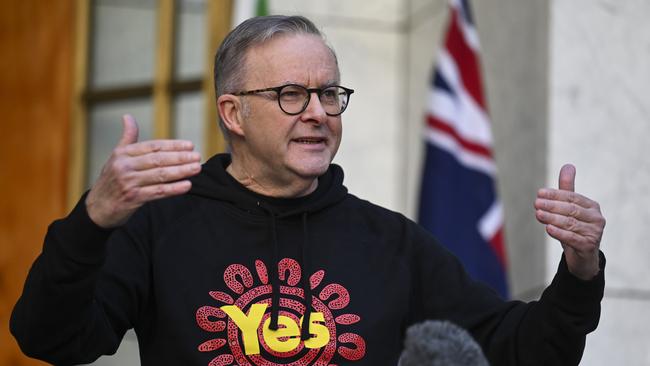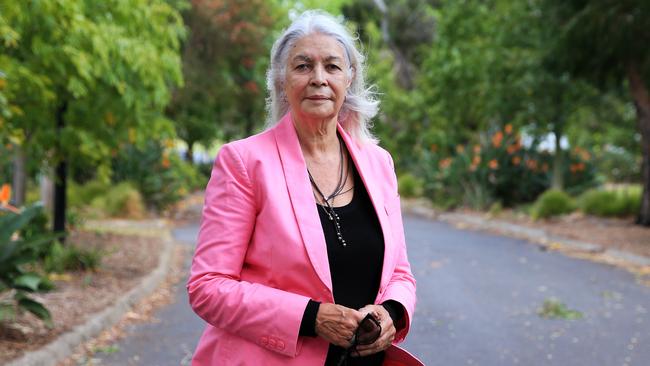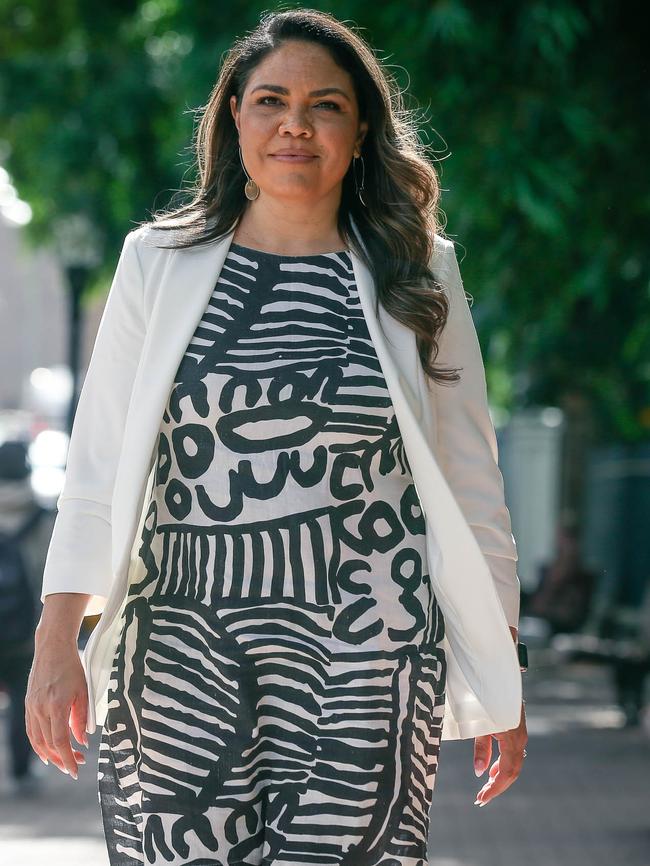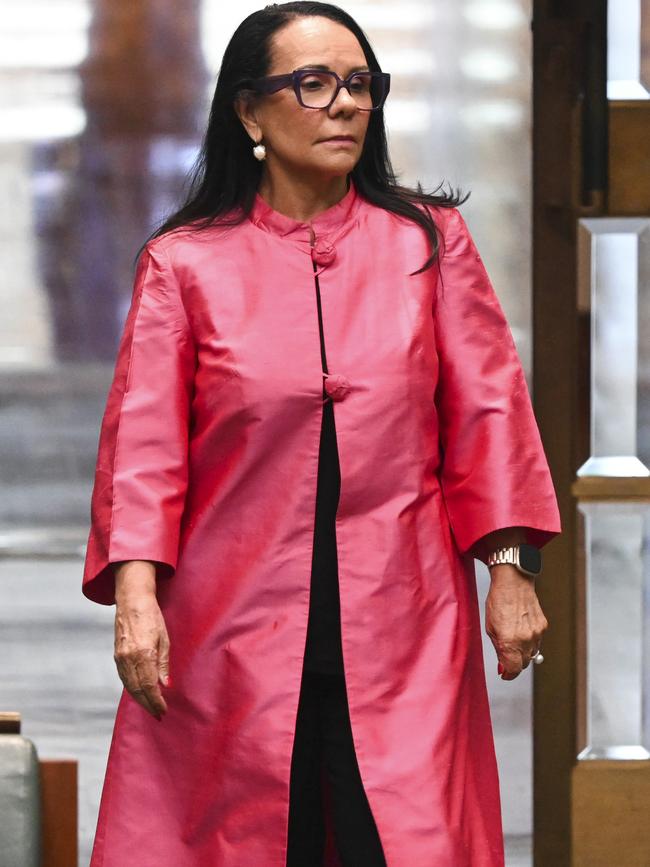Anthony Albanese has miscalculated and the Indigenous voice to parliament could be doomed
The lack of real leadership from Anthony Albanese means Indigenous Australians have been given what looks like a false hope while the nation has been divided.

The Prime Minister has miscalculated on the political strategy for the October 14 referendum for an Indigenous voice to parliament and executive government, having already lost enormous public goodwill and designing a debate without substance.
As a result, public support for the Yes campaign has slumped and the referendum already could be doomed to failure. There has been an inability to explain how the voice would work and, in the absence of substance, the vacuum has filled with trivia and invective.
Indigenous Australians have been given what looks like a false hope and the nation has been delivered division.
Even if the referendum passes on the strength of a $100m advertising campaign in the next four weeks and a desperate turn to negativity, damage to Indigenous reconciliation has already been done through the bitter vitriol, fearmongering, moral bullying and racial sledging of some on the warring sides.
The explosion of racist language this week and the diversion of the debate into name-calling after voice architect and Yes campaigner Marcia Langton said the No campaign was based on “base racism and sheer stupidity” demonstrated how febrile and divisive the referendum campaign has become.

Both sides trotted out examples of racist language and sought apologies or condemnation as Peter Dutton sought to entwine Albanese in all the worst aspects of the debate and detract from the government’s political success in getting its $10bn housing fund through the Senate.
“They’re just providing a look through the window of what the voice might be as a body if it’s successful on October 14. It will be divisive, it will divide Australians, and you hear it in the language of Marcia Langton,” the Opposition Leader said on Thursday.
Albanese was warned of all of this, including by voice supporters, but was dismissive and remained convinced of the inevitability of success based on public goodwill without detailed arguments.
Indeed, the only major factor the Yes campaign was not warned about was the emergence of Jacinta Nampijinpa Price as a powerful new force in politics as the face of the No campaign who has completely overshadowed Labor’s hapless Indigenous Australians Minister, Linda Burney.


With public polling showing the Yes vote is below 50 per cent even in the ACT – the only jurisdiction to vote in favour of a republic in 1999 – there is growing pessimism and embittered frustration within Labor and the Yes campaign but no retreat or change from Albanese.
In the closing hours of the final parliamentary sitting before the voice referendum, Albanese remained committed to his original strategy: appealing to the emotion of love to reject the “powerful emotion of fear”, deriding appeals for details of the scope of the voice and doggedly determined to continue. Although, as support for the referendum has fallen, there is now a concession about how hard it will be to succeed.
“Changing a constitution is tough. It’s hard. We knew that at the beginning of this journey. It didn’t stop us from stepping out. And not for a day, not for a day have I regretted that decision,” Albanese said.
“I want the Yes campaign to be positive. The Yes campaign is about embracing a message of reconciliation and unity and, yes, love. Fear is a powerful emotion. Fear is a powerful emotion, but it’s not one that advances a country. What advances a country is bringing people together and a positive message.”
Albanese called on MPs to carry a “message of love and hope and reconciliation. Away from the parliament and back to the people in our electorates.”
“In the next four weeks Australians can take the next step to a better future. By writing Yes. That is all we are being asked to do. To write Yes. Walk those few steps is what we are being asked to do,” he said.
But moments later he attacked the character of the Coalition, describing it as: “Negative. It’s angry. It’s hostile and seeks to divide. Never seeks to bring people together.”
Yet much of this criticism could be directed towards the results of Albanese’s own miscalculation.
Albanese’s failure of leadership for all Australians rests on two of his basic decisions at the start of the referendum process on election night in May last year.
First, as Prime Minister, he did not seek any compromise from the Indigenous leaders and architects of the voice to parliament to give the referendum the best chance of being passed. Second, having committed to a difficult model, he did not do everything he could to ensure success.
When he enthusiastically committed to a referendum this term to enshrine a voice to parliament, Albanese was operating on the basis that there was goodwill towards Indigenous Australians and his Labor government could win by appealing to that emotional goodwill without relying on a constitutional convention or providing details of how a voice to parliament would work.
Public polling clearly showed there was goodwill towards Indigenous people, even towards constitutional recognition, and Albanese believed an emotional campaign that did not get into detail would easily succeed and politically marginalise and damage Dutton.
Albanese’s mantra on the timing and style of the voice referendum was always that when Indigenous leaders asked him to hold a referendum he couldn’t “say nup” and argued “if not now, when?”. He did not use the authority of his office and the strength of his offer to argue for a less radical, less difficult model to sell, nor did he consider the haste of the venture could be its undoing.
With no discussion or mandate from a constitutional convention, emotional support drained, the demand for detail grew and the No campaign delivered a devastating slogan: “If you don’t know, vote no.”
Albanese’s lack of regret this week for embarking on his campaign and his continued expression of confidence in the referendum being passed by a majority of Australians and states is a clear indication of his faith in the emotional campaign and refusal to offer any detail or legislative outline. Yet even Labor senator Pat Dodson – the father of reconciliation – conceded the effectiveness of the No campaign was boosted by the lack of detail about the voice advisory body, which made the Yes campaign more difficult.
“I think that it’s difficult, as everyone knows, to promote the Yes campaign in terms of the detail, what the proposition is, what the provision is, why this is important, how it’s going to benefit us?” he told The Australian.
On the No campaign side, opposition Indigenous Australians spokeswoman Price has effectively countered Labor’s emotional strategy with deeply personal stories of domestic violence, sexual assault of children and murders, demonstrating the reality of life for the most marginalised and arguing the voice will not address their practical problems.
Price’s effectiveness as a campaigner, given she has been in the Senate for only just more than a year, has altered the trajectory of the voice debate and turned her into a new force within the Coalition. Just as Kevin Rudd was able to use the Iraqi wheat scandal as the issue to lift his profile to the point of being a Labor leadership contender and Peter Reith used referendum opposition to be seen as a possible Liberal leadership candidate, Price will emerge from this referendum campaign with an authority and political credibility that will have to be recognised and rewarded within the Coalition.
This is especially so given the inversion of Albanese’s strategy to use the referendum to terminally damage the Opposition Leader and the Coalition for opposing the voice to parliament.
A defeat for the referendum is now unequivocally a defeat for Albanese, who acted in haste and with hubris.




Anthony Albanese is letting down Indigenous Australians because of a lack of real leadership and a failure in his duty, not only to Indigenous people but also to the nation.